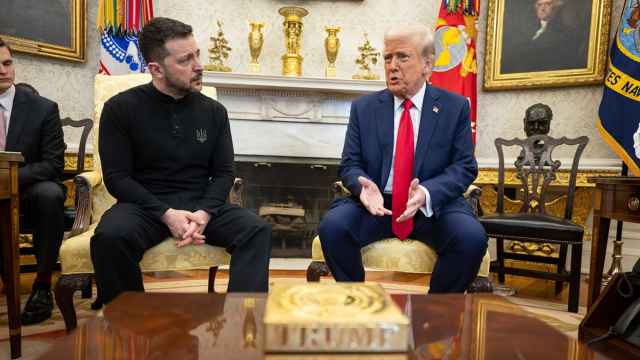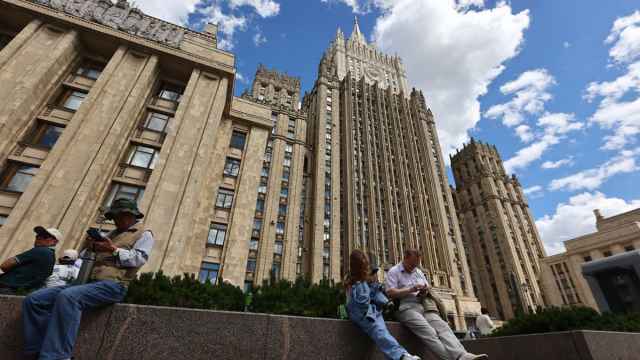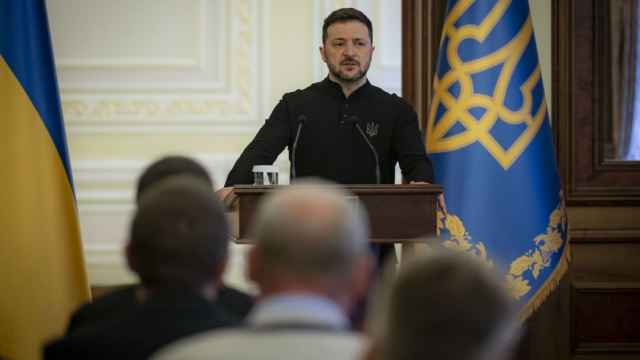Moscow authorities could resort to cloud-seeding techniques in an effort to ensure blue skies on May 9 when the capital's residents traditionally flock to the streets to celebrate Victory Day, a senior meteorologist said Tuesday.
Silver iodide, liquid nitrogen or cement particles can be released from planes into clouds, causing water molecules to coagulate and clouds to release their precipitation before they reach Moscow, meteorological center chief Roman Vilfand said at a press conference, Interfax reported.
Vilfand said the technique worked in 50-60 percent of cases but would not guarantee clear skies in the event of a last-minute change in weather conditions such as a warm weather front arriving.
Last year Moscow authorities said they would spend almost $4 million on "meteorological protection" for the city during the May holidays. Vilfand did not say how much would be spent this year.
Vilfand said that "cloud dehydration" techniques do not present a threat to people's health or the environment.
However, if a mishap from six years ago is anything to go by, people's property might be at risk.
An attempt to guarantee a rainless Russia Day in 2008 went wrong when a 25 kilogram sack of cement that was dropped from a plane failed to pulverize, speeding down to earth in one piece and destroying a home in a Moscow suburb, according to Reuters.
No one was injured as a result of the accident and the homeowner received 50,000 rubles ($1,400) in compensation, Interfax reported.
Russia commonly uses cloud-seeding techniques to control weather conditions on the most important national holidays.
Similar practices were used in the 1980s when a weather-engineering program was designed to limit snowfall over Moscow, ecologist Valery Stasenko told the BBC. The program was later scrapped under then-President Mikhail Gorbachev due to budget cuts, Stasenko said.
See also:
A Message from The Moscow Times:
Dear readers,
We are facing unprecedented challenges. Russia's Prosecutor General's Office has designated The Moscow Times as an "undesirable" organization, criminalizing our work and putting our staff at risk of prosecution. This follows our earlier unjust labeling as a "foreign agent."
These actions are direct attempts to silence independent journalism in Russia. The authorities claim our work "discredits the decisions of the Russian leadership." We see things differently: we strive to provide accurate, unbiased reporting on Russia.
We, the journalists of The Moscow Times, refuse to be silenced. But to continue our work, we need your help.
Your support, no matter how small, makes a world of difference. If you can, please support us monthly starting from just $2. It's quick to set up, and every contribution makes a significant impact.
By supporting The Moscow Times, you're defending open, independent journalism in the face of repression. Thank you for standing with us.
Remind me later.





